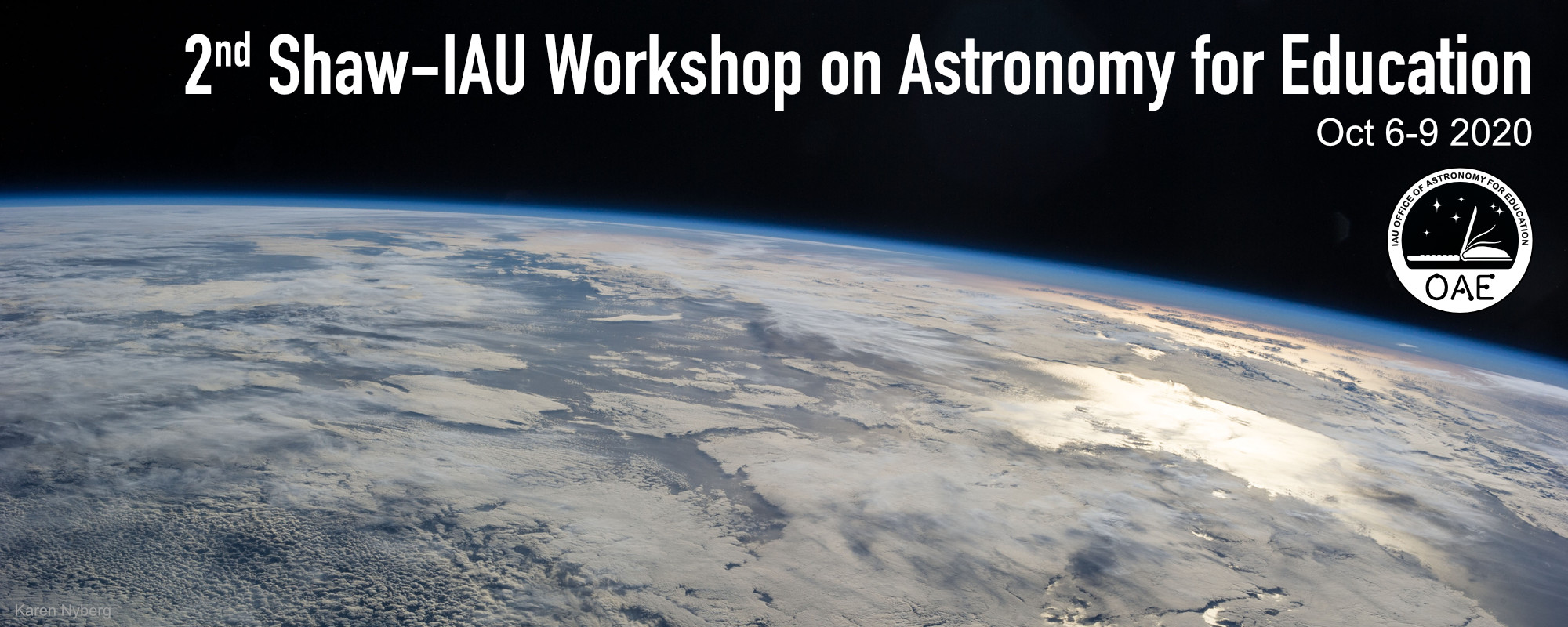
2nd Shaw-IAU Workshop on Astronomy for Education
The 2nd Shaw-IAU Workshop on Astronomy for Education was held from the 6th of October 2020 to the 9th of October 2020 (UTC time)
Speaker suggestions have closed
The sessions for the 2nd Shaw-IAU Workshop on Astronomy for Education are listed below
Opening Event including official opening of the OAE
Keynote Talks
Astronomy and Space Science: On top of Children’s interest
The talk presents selected results from the ROSE-project (Relevance Of Science Education), a study of how 15 year old students in different countries relate to science and technology. Young people from some 50 countries expressed their experiences, attitudes, interests and future plans. Data reveal interesting differences between young people from different countries as well as large differences between girls and boys. Astronomy comes out in a most positive way. A follow-study of ROSE is being planned and is open for participation.
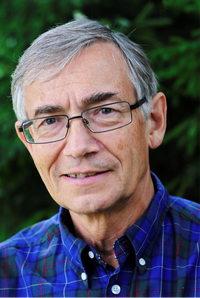
Svein Sjøberg (Professor in Science Education, Department of Teacher Education and School Research, University of Oslo, Norway)
Svein Sjøberg is professor emeritus in science education at Oslo University, Norway. He is educated as a nuclear physicist (cand.real), later in education (MA) and in educational psychology (PhD). He became the first professor in the field of science education in the Nordic countries.
Svein has worked with children's conceptual development, with gender and science education and education in developing countries. His current research interests are the social, ethical and cultural aspects of science education, in particular the impacts and influence of large scale assessment studies like PISA and TIMSS. He has worked with international and comparative aspects of science education through e.g. UNESCO, OECD and the European Union. He has won several international prizes and awards for his research, teaching and promotion of science literacy and public understanding of science. He is a member of editorial boards of several academic journals and book series, has written numerous books and articles, and has supervised many PhD-students in different counties.
He organized the ROSE project (The Relevance of Science Education) in the period 2002- 2014, with participation from some 50 countries.
Svein is an elected member of The Norwegian Academy of Science and Letters and represents the Academy in international policy matters regarding science education, for instance in ALLEA (the European Federation of Academies of Sciences and Humanities)
For more information about this talk click here
Astronomy education around the world
Astronomy education in low-tech environments: Challenges and solutions
Keynote Talks
Overcoming the Challenges of Astronomy Education in low-tech Environment: The Nigerian Story
This presentation highlights the challenges of Astronomy Education in low-tech environment and the efforts towards mitigating them. Public schools in Nigeria are almost free, but mostly poorly funded and lacking in basic infrastructure such as internet, electricity, etc. Astronomy is not taught at the elementary and Secondary school levels in Nigeria as there is no curriculum for Astronomy at such levels.
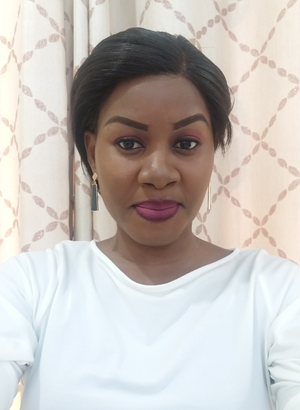
Olayinka Fagbemiro (Astronomers Without Borders (AWB) Nigeria)
Olayinka Abiodun Fagbemiro is the Founder/CEO of Astronomers Without Borders (AWB) Nigeria. She leads a versatile team of young and enthusiastic STEM experts, overseeing the daily activities of AWB Nigeria. She is currently a PhD student of Geoinformatics.
For more information about this talk click here
Astronomy education resources
Keynote Talks
Big Ideas in Astronomy
Many people who are active in public outreach have practical experience of the kinds of astronomical knowledge commonly held by the general public. Until last year, however, there had not been a systematic evaluation and a clear definition of what astronomical literacy means. The “Big Ideas in Astronomy” booklet, was released with the aim of clarifying these ideas. In this talk we will present the booklet and involve participants to contribute their ideas towards the current and next steps for the project.
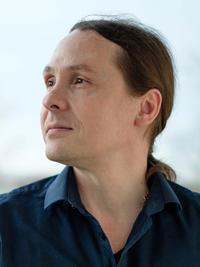
João Retrê (Institute of Astrophysics and Space Science, Portugal)
João Retrê is a science communicator that works at the Institute of Astrophysics and Space Sciences, Portugal, as the coordinator of the Science Communication Group. With about 20 years of experience in the area, João has led, developed and participated in several projects, national and international, which aim to make science, in particular Astronomy, accessible and close to everyone. As part of his work, he develops strategies to involve young students and researchers in science communication and education, with the aim of creating an early awareness of the importance of this area. João is the IAU’s national outreach coordinator for Portugal and also leads the IAU’s sub-Working Group for “Hospitals, Children Homes, Nursing Homes and Prisons”, as part of the Working Group of the Executive Committee for Equity and Inclusion.
For more information about this talk click here
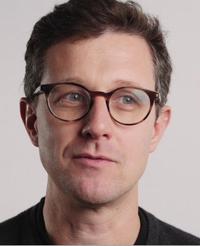
Pedro Russo (Leiden Observatory and Dep. Science Communication & Society, Leiden University)
Pedro Russo is University Professor in Astronomy & Society at Leiden University, the Netherlands. Dr. Russo was the global coordinator for the International Year of Astronomy 2009. Pedro obtained his University degree in applied mathematics, physics and astronomy from the University of Porto, Portugal. Pedro was a research fellow at the Max Planck Institute for Solar System Research in Germany. Pedro is involved with several international organisations, like the European Astronomical Society, Europlanet (European Planetology Network), the International Astronautical Federation. His work has received several awards, such as Seeds Special Award 2009, Scientix Best Educational Resource in 2015 and 2016, Most Innovative Educational Activities in 2017 and 2018 by HundrED and 2018 Leiden University’s K.J. Cath Prize.
For more information about this talk click here
astroEDU: an astronomy activity repository. Developments over 2020
astroEDU has been reviewing and publishing activities since 2013. In 2020, the repository has been in the process of being transferred over to being administered by the OAE. As this has been happening, it has made sense to take stock of what activities are available and for whom, what we know is taught in schools worldwide, what constitutes astronomical literacy and whether all of these are in alignment. After an overview of astroEDU itself, what activities are available and what activities we will be asking for in the coming months will be presented.
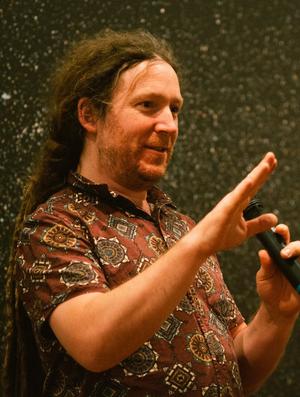
Michael Fitzgerald (Edith Cowan University Perth)
Michael is a Senior Research Fellow in the School of Education. His
research interests encompass STEM education, with a particular
focus on astronomy education, as well as pure astronomy research.
He has a particular interest in encouraging the use of remotely
accessible telescopes to support authentic research and educational
activities in the classroom as well as professional learning for high
school teachers. He holds many leadership roles in astronomy
education worldwide, including being the current Secretary of the
International Astronomical Union’s Commission C1 for Education
and Development.
For more information about this talk click here
Considerations on the importance of building a national astronomical glossary: the Japanese case study
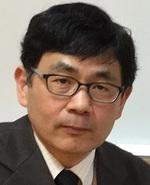
Hidehiko Agata (National Astronomical Observatory of Japan - NAOJ)
I study science education, science communication and public relations in Public Relations
Center(PRC), NAOJ. PRC was created in 1998 to share the latest research results of astronomy
with the public. We communicate and promote research breakthroughs in a manner that is
understandable, relevant, and exciting. For this purpose, we over a range of services and
deliver amazing scientific information through a variety of media including the Web and
scientific readings. We also have built an effective partnership with dissemination experts
working for public observatories, science museums, and planetariums.
For more information about this talk click here
The making of the Universe in the Box
The Universe in the Box is an educational kit developed for teachers willing to bring astronomy to 4–10 year old children around the world. It contains 40 practical activities and it is currently used successfully in more than 60 countries. This Box is based on a prototype that I developed and tested 2005-2008 during my work with children in Germany, Venezuela and Colombia. During this talk I will give insights on how the materials and first pilot programs were developed and implemented.
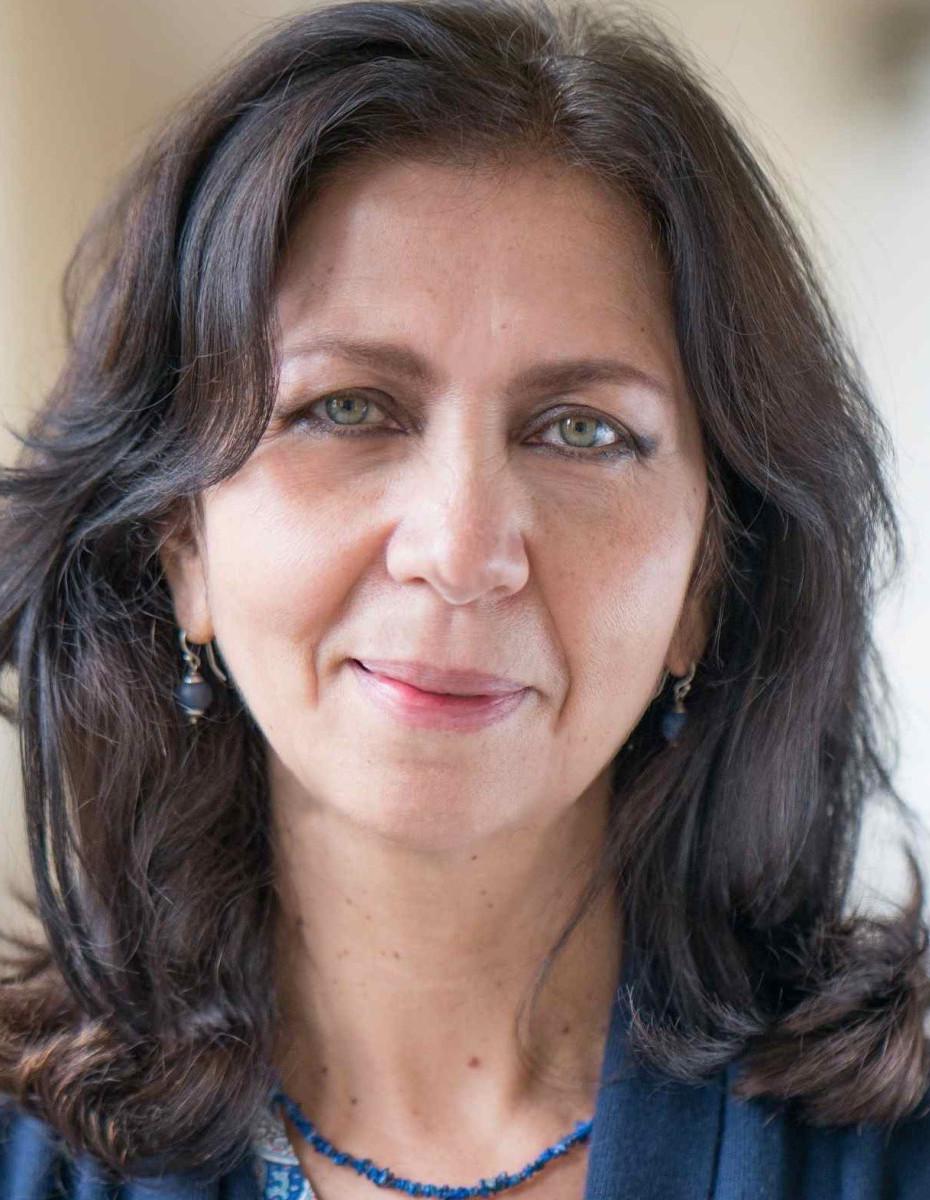
Cecilia Scorza (LMU Faculty of Physics Munich)
Dr. Cecilia Scorza is an educationalist and astronomer with PhD in extra galactic astronomy from the Heidelberg University. After years of research at the Landessternwarte, she devoted herself to educational and public outreach activities. Together with Prof. George Miley and Claus Madsen (ESO) Cecilia initiated 2005 the IAU's "Universe Awareness Programme" (UNAWE), for which she developed the "Universe in the Box" (currently used in more than 60 countries). 2009 she coordinated numerous activities for the International Year of Astronomy 2009 and organized an exchange program on astronomy as part of the German-South African Year of Science 2012-2013. From 2007-2012 she coordinated the educational program of the German SOFIA Institute (DSI) at the University of Stuttgart, founded a national wide SOFIA teachers' network, and initiated the SOFIA teachers' flight program. From 2011 to 2016 she worked at the University of Heidelberg and at the House of Astronomy (HdA). She developed educational materials for the Collaborative Research Center SFB 881 "Milky Way System" and "The Journey of Ideas" for the EU-SPACE-AWARENESS. From 2013 to 2017 she supported the Office of Astronomy for Development (OAD) with the foundation of the "Andean Regional Node" in Latin America. She initiated the DAAD educational exchange program between the Center for Astronomy Heidelberg (ZAH) and the Universidad Pontífica Católoca (PUC) in Chile. From June 2013 to March 2017, she was a consultant to ESO through the HdA, where she worked on the design of the exhibition and student workshops for the ESO Supernova. Since May 2017 she coordinates the public outreach and school contacts at the Faculty of Physics at LMU. Currently she works on the development of the project "Climate Change: Understanding and Acting" for schools and the Pale Blue Dots (PBD) educational materials.
In 2007 Cecilia Scorza received the Neumann Prize for Didactics from the German Astronomical Society (AG). In June 2015, the "Universe in the Box" was awarded the Scientix Prize of the EU. In February 2018, she received the Kepler Prize for Physics Education from the German Association for the Promotion of STEM Teaching (MNU).
Dr. Cecilia Scorza is an educationalist and astronomer with PhD in extra galactic astronomy from the Heidelberg University. After years of research at the Landessternwarte, she devoted herself to educational and public outreach activities. Together with Prof. George Miley and Claus Madsen (ESO) Cecilia initiated 2005 the IAU's "Universe Awareness Programme" (UNAWE), for which she developed the "Universe in the Box" (currently used in more than 60 countries). 2009 she coordinated numerous activities for the International Year of Astronomy 2009 and organized an exchange program on astronomy as part of the German-South African Year of Science 2012-2013. From 2007-2012 she coordinated the educational program of the German SOFIA Institute (DSI) at the University of Stuttgart, founded a national wide SOFIA teachers' network, and initiated the SOFIA teachers' flight program. From 2011 to 2016 she worked at the University of Heidelberg and at the House of Astronomy (HdA). She developed educational materials for the Collaborative Research Center SFB 881 "Milky Way System" and "The Journey of Ideas" for the EU-SPACE-AWARENESS. From 2013 to 2017 she supported the Office of Astronomy for Development (OAD) with the foundation of the "Andean Regional Node" in Latin America. She initiated the DAAD educational exchange program between the Center for Astronomy Heidelberg (ZAH) and the Universidad Pontífica Católoca (PUC) in Chile. From June 2013 to March 2017, she was a consultant to ESO through the HdA, where she worked on the design of the exhibition and student workshops for the ESO Supernova. Since May 2017 she coordinates the public outreach and school contacts at the Faculty of Physics at LMU. Currently she works on the development of the project "Climate Change: Understanding and Acting" for schools and the Pale Blue Dots (PBD) educational materials.
In 2007 Cecilia Scorza received the Neumann Prize for Didactics from the German Astronomical Society (AG). In June 2015, the "Universe in the Box" was awarded the Scientix Prize of the EU. In February 2018, she received the Kepler Prize for Physics Education from the German Association for the Promotion of STEM Teaching (MNU).
For more information about this talk click here
Astronomy Education within the IAU
Keynote Talks
The IAU’s global strategy for astronomy
The IAU Strategic Plan 2020-2030 offers a comprehensive overview of the IAU and its long-term objectives. IAU focuses on advancing knowledge and promoting research in astronomy through international cooperation. In partnership with organisations around the world, the IAU created four offices, with clear mandates: training, communication, education, and development. The Office of Astronomy for Education fulfils the IAU’s goal of using astronomy as a stimulus and tool for teaching and education, from elementary to high school, in all country.
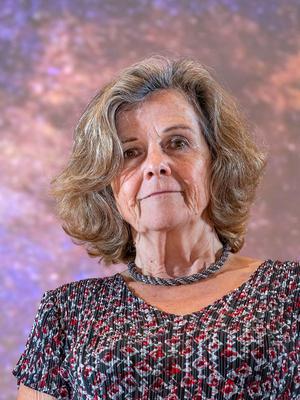
Teresa Lago (General Secretary of the IAU)
Full Professor of Astronomy, University of Porto (UP), Portugal (retired). Responsible for setting-up/coordinating the 1st Astronomy Degree in Portugal (1983), the European Inter-university Masters Degree (1994), the “European Astrophysics Doctoral Network” involving 33 European Universities (1986) and the Astronomy Doctoral Program (2004). Author of the “National Plan for the Development of Astronomy” (1987), founder of the Centre for de Astrophysics (1988) that she directed for 18 years, and of the Porto Planetarium (1998). Prepared the Association of Portugal to ESO (1989) and was National Delegate to the ESO Council until 2013. Chaired the national Scientific Council for “Earth & Space Sciences”.
For more information about this talk click here
The IAU Office for Astronomy Outreach: building bridges through international cooperation
The IAU Office for Astronomy Outreach (OAO) goal is to engage the public in astronomy through access to astronomical information and communication of the science of astronomy. Our work focuses on building bridges between the IAU and the global astronomy community of outreach practitioners, educators, and the general public, and through international cooperation, to make astronomy accessible to all. Here we present the collaborative framework of our programmes in alignment with the IAU Strategic Plan 2020-2030.
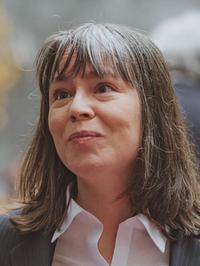
Lina Canas (IAU Office for Astronomy Outreach, IAU/NAOJ)
Lina Canas has been working for the International Astronomical Union (IAU) Office for Astronomy Outreach (OAO) since 2015, first as Assistant Outreach Coordinator and in 2019, as International Outreach Coordinator. With a background in astronomy and geophysics, for the past fifteen years, she has worked in astronomy outreach and education, including scientific content production, project management and community building in international networks, with a strong component on accessibility. She is based at the National Astronomical Observatory of Japan (NAOJ) in Tokyo.
For more information about this talk click here
The IAU Office of Astronomy for Development
Since its establishment in 2011 the OAD has coordinated 160 projects targeting over 100 countries, with 11 regional offices and language centres forming part of global management structure. Flagship projects include (i) Stimulating economies with astronomy e.g. astro-tourism; (ii) Science diplomacy e.g. astronomy for peace; (iii) Knowledge and skills from astronomy e.g. data science training. This talk describes how we are working towards the OAD vision of “Astronomy for a better world".
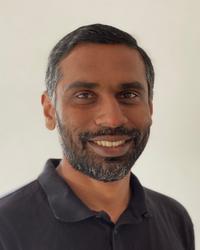
Kevin Govender (IAU Office of Astronomy for Development)
Kevin Govender is a physicist by training and founding Director of the Office of Astronomy for Development. He was previously Manager of the Southern African Large Telescope’s Collateral Benefits Programme at the South African Astronomical Observatory, and Fast Neutron Scientist at Necsa. He was awarded the Edinburgh Medal in 2016, jointly with the International Astronomical Union, for his current work, "which integrates the pursuit of scientific knowledge with social development for and with those most in need".
For more information about this talk click here
The IAU Office of Astronomy for Education (OAE)
What is the newly-founded IAU Ofice of Astronomy for Education (OAE), how does it fit within the structure of the International Astronomical Union, and what are its specific goals? The talk addresses these questions and also presents the resources the OAE has at its disposal to accomplish its mission of fostering astronomy education world-wide, through international cooperation, with the help of the network of National Astronomy Education Coordinators and the future OAE Centers and OAE Nodes.
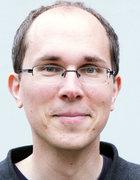
Markus Pössel (Office of Astronomy for Education/Max Planck Institute for Astronomy)
Markus Pössel is a relativistic astrophysicist, managing scientist of the center for astronomy education and outreach Haus der Astronomie in Heidelberg, and director of the IAU's Office of Astronomy for Education.
For more information about this talk click here
IAU Commission C1: Astronomy Education & Development
This presentation starts mentioning the history of Com. C1, formerly Com. 46 based on the published Newsletters. The results show meetings, courses, teaching materials, book reviews, papers, phenomena and projects such as: International Schools for Young Astronomers (ISYAs), the travelling telescope, WGs, travels, triennial reports, education sessions and business meetings during the Gas from many countries for all school levels. The current activities mention the efforts of WGs, meetings, the journal and other projects.
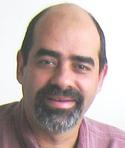
Paulo Bretones (Universidade Federal de São Carlos, São Paulo)
Degree in Chemistry (1991), MSc (1999) and PhD (2006) in the area of Astronomy education research from the State University of Campinas (UNICAMP).
He is currently an Associate Professor at the Federal University of São Carlos. Was coordinator of the Teaching and Dissemination Section (SEDA) of the Iberoamerican Astronomy League (LIADA) between 1992 and 2014 and Coordinator of the Teaching and Dissemination Commission (COMED) of the Brazilian Astronomical Society (SAB) between 2012 and 2016. Since 2004 is co-editor of the Latin American Journal of Astronomy Education (RELEA), and since 2018 President of the C1 Commission (Astronomy Education & Development) of the International Astronomical Union (IAU).
Author of didactic books “The Secrets of the Solar System”and “The Secrets of the Universe” and organizer of the book “Gamesfor the Teaching of Astronomy”.
He has participated in sky observation and astronomical dissemination projects, giving lectures (450) and courses aimed at students, teachers and the general public (70). He has also written articles in newspapers and magazines (190) as well as participated in radio (200) and TV/Video programs (80). Has experience in Astronomy, with emphasis on Education. Acting mainly on the following topics: Astronomy, Chemistry, Education and Teaching.
For more information about this talk click here
Making astronomy education equitable, diverse and inclusive
Keynote Talks
Equity, Diversity and Inclusion in Astronomy Education
Everybody benefits from an inclusive and accessible outreach and educational environment, not only people with disabilities. Inclusive resources and tools that include publics with functional diversity make astronomy more accessible and fun to everyone regardless of their physical condition. In this talk I will dwell a little on the benefits of inclusion and I will show some examples that have been successful in the field of astronomy outreach and education.
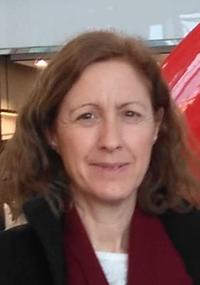
Amelia Ortiz Gil (University of Valencia Astronomical Observatory)
Amelia Ortiz-Gil has a PhD in Physics (University of Valencia, Spain) and has carried her research on the topics of the Carte du Ciel photographic catalogue, the intergalactic medium and the physical properties of galaxy clusters at different research centres around the world. Lately she has focused on the field of astronomy outreach, in particular the development of inclusive activities for all publics. She is the coordinator of the project “A Touch of the Universe” which has developed tactile models of planetary bodies specially designed for the blind. She is currently the Chair of the International Astronomical Union Working Group on Astronomy for Equity and Inclusion. She was awarded the 2019 Europlanet Prize for Public Engagement with Planetary Science.
For more information about this talk click here
Impact of Racial Inequalities on African Development
Racial inequalities in Africa mainly manifest in the economic exclusion of black people. Such economic exclusion transcends across the socio-economic fabric and limit education investments that parents can make on their children so that they can enroll into higher education and into STEM careers (including astronomy). The seeds of economic exclusion were sown by colonialism. Although a lot of progress has been achieved post-colonialism, a lot of challenges still persist.
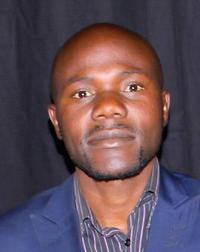
Tawanda Chingozha (Post-doc fellow (Stellenbosch University), Development Economics Fellow (OAD))
Tawanda Chingozha is a development economist whose primary area of work involves the application of quasi experimental techniques in estimating the effects of policy interventions on socio-economic outcomes. His research has a strong focus on land tenure issues in sub-Saharan Africa (SSA) and how they affect agriculture and other social economic outcomes. He also has considerable expertise in GIS, the use of remotely sensed datasets and land use classification through machine learning and citizen science. Tawanda Chingozha has worked on various local and international consulting projects – mapping and analyzing both small area and household level data and providing key policy insights.
For more information about this talk click here




